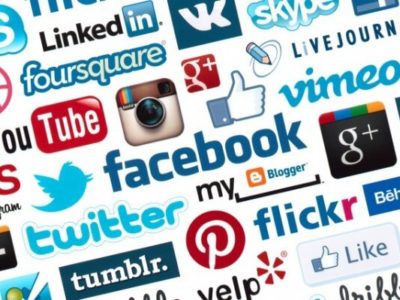iPhone alarm beeps. Tap snooze. More beeping. Turn off alarm. Check Instagram, Facebook and Twitter. Get up. Brush teeth. Sound familiar? Probably. For most of us, we check social media from the second we wake up to the second we go to sleep. This exposure has to have some effect on us, right? Our feeds are littered with pictures of beautiful people with beautiful bodies in beautiful places next to their beautiful partners. Social media platforms used to be a great way to stay connected, but now the focus is shifting to beauty and body ideals.
Unlike magazines that portray gorgeous celebrities, social media allows us to compare ourselves to the girl who sits in front of us in calc or the guy in our econ study group. Most of us know that flawless Kim Kardashian Cosmo spread had a lot of help from airbrushing, photoshopping, heavy contouring and a stylist. But when we open Instagram or Facebook, we see people just like ourselves, but with the body or lifestyle or clothes that we want, and we become obsessed with beauty ideals—a flat stomach, a big round butt or the perfect skinny arm.
People get Insta-famous just for being attractive. Jen Selter, who achieved notoriety for her incredibly large and toned butt after posting pictures on Instagram and gaining more than 6 million followers, now gets paid big bucks for sponsorship and endorsement deals. She can make about $60,000 from one Instagram post.
When we see people who can achieve our ideals of perfection without all the help celebrities get, it’s an even bigger blow to our self-esteem. What’s my excuse for not having Selter’s butt? It’s a slippery slope that quickly leads to endless comparison.
The emphasis placed on appearance has become so overbearing that we seem to forget about everything else. You can take a picture in front of the Eiffel Tower, and someone’s first comment will be, “Omg, you look sooooo skinny!” rather than, “Hey, how was Paris?” said eating disorder clinician Erika Vargas. “It would be nice if the focus shifted a little more to ‘What’re you doing?’ or ‘How’re you feeling?’”
Beauty isn’t found in any specific size decided by Facebook. Even when we try to define beauty as healthy (@fitspo, @squatspo, @motivationforfitness) we face another troubling issue. “There is an extreme of being too healthy,” said Dr. Susan Kelly-Weeder, an associate professor of nursing at Boston College. “We’re seeing more and more people who are so healthy, they’re barely eating.” People are so consumed by the idea of #cleaneats promoted on social media that they’re restricting their diet to an unhealthy limit.
That’s the whole issue. We’re trying to find one definition of beauty, when there are an infinite number of them, different for every individual. “I think we all need to focus on being our healthiest, best version of ourselves,” said Hilary DeVries, assistant director of fitness and wellness at the Flynn Recreation Complex Center at Boston College. At the same time, we have to be realistic about our expectations.
“We’re always talking about what exercise can make us lose, when really it’s giving us so much more—confidence, heart health, stress relief,” DeVries said. Because of bone structure, it’s literally impossible for some people to have a thigh gap, no matter how much they diet and exercise. “I think that by realizing that we are who we are, we can be our best possible self. We don’t have to be perfect in someone else’s measurements,” Kelly-Weeder said. “You can decide what’s perfect for you.”
I’m not trying to say looks are completely irrelevant—we all care a little, and we should strive to be better in a healthy way (to an extent)— but at the end of the day I try to remember that it isn’t everything.
I’ve struggled with body issues for many years. At the start of my senior year, I decided to follow my friend to some fitness classes. Before then, I had never even stepped foot in a gym. It took forever, not to just see, but to feel the slightest change. One of my favorite instructors at the gym always says, “We love our bodies for what they can do, not what they look like.” Because so many things depend on genetics, we shouldn’t make our main focus achieving a thigh gap or a defined collarbone. They’re great to have or not to have, but it can be just as rewarding to be able to hold a plank for 30 seconds.
I’m still insecure about my body, and I know those feelings won’t disappear overnight. That will take time. But we are our own worst critics. Right now, I’m focusing on improving my health according to my own personal standards, not what Facebook or Instagram deems right.
So are you fat? Or is it Facebook? That’s for you to decide, but keep in mind that Facebook doesn’t define what is fat or skinny or healthy or beautiful. Next time you see Candice Swanepoel laying on the beach in a bikini, remember you’re not her and don’t even make the comparison. She’s not the only depiction of beauty. You are too.



















